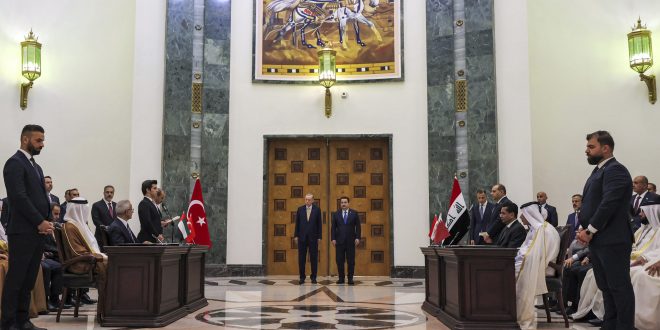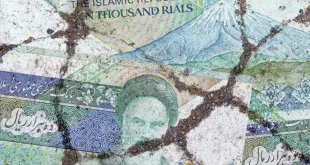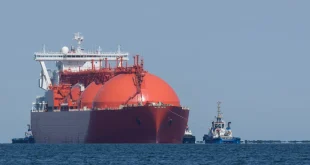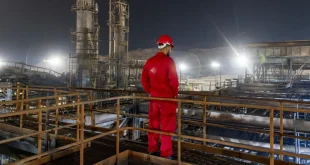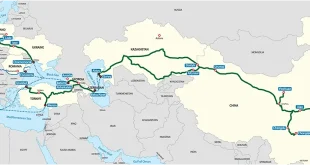To advance its ambitious Development Road project, Iraq must navigate several obstacles, including inadequate infrastructure, corruption, security concerns, and a delicate geopolitical position.
Last month, after Turkish President Recep Tayyip Erdogan visited Baghdad, Iraq announced that it would join the region-wide “Development Road” project, which will link the country with Qatar, the UAE, and Turkey. Baghdad is also near completing construction of the Grand Al-Faw Port, which will immediately become the largest port in the Middle East and strengthen Baghdad’s geopolitical position as an essential commercial link between Asia and Europe. On the other hand, the Development Road initiative aims to establish Iraq as a key regional player. The project’s system of rail networks, motorways, industrial zones, and cargo airports will see commodities from the Gulf transit Iraq en route to Turkey and European markets. These initiatives, in spite of the diverse set of challenges each faces, would send shockwaves through the Gulf’s development environment. Not only would they challenge established trade corridors like China’s Belt and Road Initiative (BRI) and the India-Middle East-Europe Economic Corridor (IMEC), the initiatives could revolutionize regional connectivity and spur diversification, underscoring the critical role that infrastructure development plays in Iraq’s economic future and the prosperity of the Gulf.
The Geopolitics of the Development Road
The implications of the Development Road initiative are wide-ranging and profound, affecting countries in Iraq’s near-abroad and superpowers alike. For instance, the project will impact the power dynamics between Iraq and its eastern neighbor, Iran. Traditionally, the two countries have vied for dominance of regional transportation networks, with Iran’s strategic location and extensive rail network giving the Islamic Republic a significant advantage. However, obstacles including political unrest, weighty international sanctions, and deteriorating domestic infrastructure have diminished its attractiveness as a regional logistics hub. On the other hand, Iraq is rapidly emerging as a viable alternative equipped with state-of-the-art facilities like Al-Faw. Experts have argued that Al-Faw will allow Iraq to become a premier destination for international goods and circumvent Iran’s maritime infrastructure altogether. Policymakers in Tehran are well aware of this threat to Islamic Republic’s commercial standing, and it is expected that the struggle over trade routes may bleed into negotiations on energy or even security issues.
But Iraq and Iran are not the only players seeking to reshape the logistics environment of the Gulf. The growing rivalry between Turkey and Iran has seen Ankara openly support Al-Faw, which directly undermines Iran’s hegemony in transit trade. For the time being, neither side has allowed their economic competition to escalate, but the size and significance of these initiatives highlight the dangers inherent in the struggle for commercial supremacy.
Further afield, the Development Road project aims to transform regional connectivity and logistics by spurning established trade routes such as China’s Belt and Road Initiative (BRI) and the India-Middle East-Europe Economic Corridor (IMEC) in favor of closer trade relations with regional actors. Key Gulf Cooperation Council (GCC) nations like Qatar, and the UAE have demonstrated their strong interest in joining such an initiative, offering substantial financial backing and forming strategic partnerships among companies and conglomerates across the participant countries. For instance, the UAE’s AD Ports Group has played an important role developing the Al-Faw Port, underscoring the project’s significance and regional appeal. While Saudi Arabia has yet to join the Development Road, buy-in from powerful states in the region is seen as vital for the project’s success.
Outside of the Gulf, the Development Road could reshape the international logistics environment. By distancing itself from China‘s Belt and Road Initiative (BRI) and establishing itself as a regional transit hub, Iraq aims to demonstrate its strategic significance to global commerce. However, developing into a major power player in this domain will not happen overnight. Several factors hamper Iraq’s ambitions, from the country’s poor infrastructure to comparative disadvantages vis-a-vis existing regional transit hubs like Turkey and the United Arab Emirates. Perhaps most importantly, the project’s fate is intertwined with the larger geopolitical rivalry between China and the United States. The latter has actively pursued closer ties with long-standing partners like Saudi Arabia to offset China’s influence, and Washington clearly sees China’s growing investments in Iraq as a threat to the regional balance of power. Within this geopolitical tug-of-war, Iraq will find it difficult to grow its economy, as it will need to successfully negotiate both real-world obstacles and the complicated dynamics of regional power struggles.
For all of its international impact, the Iraqi central government left the Kurdistan Region of Iraq (KRI) out of the Development Road plan entirely, citing the region’s hilly topography, which would lengthen project timeframes and raise costs. However, the exclusion of the KRI raises questions about the project’s political messaging and economic ramifications. On its face, the Development Road seeks to build a transborder transportation network that connects the Persian Gulf with Turkey—a route that should, in theory, transit Iraqi Kurdistan. Kurdish officials have objected to the plan’s exclusion of the KRI, seeing it as a ploy to punish the Kurdish area and serve Turkish interests. Indeed, after the KRI voted in favor of secession from Iraq in a referendum in 2017, the central government enacted measures that restricted the KRI’s access to government resources and reduced its ability to foster international connections. Thus, the Development Road’s apparent detour around Iraqi Kurdistan has largely been perceived as a way to guarantee Turkish support for a project that would otherwise line the pockets of Iraqi Kurds and the PKK, the capabilities of which Ankara has sworn to degrade.
Obstacles and Opportunities
Though still in its infancy, the Development Road promises a wealth of benefits and faces a set of potentially severe challenges that could stymie its success. In its efforts to become a major trading center between Asia and Europe, Iraq must contend with several obstacles, including limited infrastructure and a delicate geopolitical position. At the same time, the economic expansion, regional collaboration, and improved connectivity promised by the Development Road have the potential to transform Iraq’s economic future and promote prosperity in the surrounding area.
Several pitfalls could threaten the success of the Development Road project. Given Iraq’s current economic circumstances and the need for foreign assistance, the project requires a major injection of cash to succeed. The participation of neighboring nations—especially Turkey—is crucial to the project’s success. But the alignment of national interests is never guaranteed, especially when the central Iraqi government faces backlash over its decision to cut the KRI out of the Development Road project. Moreover, Iraq will have to address the ever-present political unrest and security issues that continue to plague the country. Instability only discourages investors and makes it more challenging to acquire the resources and infrastructure required to realize major infrastructure projects. Of course, pressure from the international backers of other regional projects like the BRI or IMEC could derail the Development Road’s ambitions for a Gulf-centric logistics model. Finally, the greatest threat to the success of the Development Road stems from the corruption and incompetence of the Iraqi state itself. Rather than instability or geopolitical pressures, financial mismanagement, delayed deadlines, and general project inefficiency present the greatest threats to the Development Road’s success. To curtail corruption, Iraq requires comprehensive changes that bolster accountability, improve transparency, and fortify governance systems. Strict enforcement guidelines and strong monitoring systems are essential to guarantee that resources are used effectively to achieve development initiatives.
The economic and societal benefits of the Development Road would be profound, if these pitfalls could be overcome. The development road would modernize Iraq’s transportation network—immediately improving the flow of goods and enhancing the country’s connection to international markets. By expanding investments in ports, trains, and roadways, Iraq can establish itself as a crucial transit route between Turkey and the Gulf—linking the Indian Ocean with Mediterranean and European markets. Modern logistics hubs may draw in foreign capital, further stimulating economic growth across a variety of industries. The Development Road initiative also promotes sustainable growth by diversifying Iraq’s economy away from oil. Investing in connection and infrastructure unlocks non-oil industries like manufacturing and tourism, resulting in job growth and socioeconomic development across the whole of Iraqi society. Such diversification would result in a better quality of life for residents, as well as greater economic stability.
Lastly, the Development Road is expected to produce up to 250,000 jobs for the Iraqi economy and further integrate the country with regional and global supply chains. Due to its advantageous location at the intersection of Europe, Africa, and Asia, Iraq is well positioned to become a leading logistics hub for international commerce. And due to its central location within the Middle East, it can serve as a leader in regional logistics integration. As the economies of the Gulf continue to diversify away from fossil fuels, the Development Road could prove central to exporting the region’s commodities to global markets.
The Development Road initiative aims to strengthen the nation’s economy and infrastructure, fostering regional integration and spurring economic advancement in the process. The $17 billion project is set to be completed in 2030. Despite facing obstacles like security concerns and geopolitical tensions, the project’s potential to generate income, create jobs, and streamline regional transportation underscores its significance for Iraq’s economic renewal and stability. However, securing support from regional and global entities remains crucial, particularly if the Development Road is to supplant other established international development schemes. Funding from the UAE and Qatar may be secured, but further assistance from Western countries and financial institutions is necessary if the Development Road is to achieve its full economic potential. As Iraq competes with other nations to establish transit corridors, the country must address issues of inefficiency and corruption, secure adequate financing, and maintain political stability if it is to present itself as a viable alternative to traditional logistics hubs. Thus, though the impacts of the Development Road are far-reaching, Iraq must look to itself to lay a foundation for the project’s success.
The views and opinions expressed in this article are those of the authors and do not necessarily reflect the views of Gulf International Forum.

